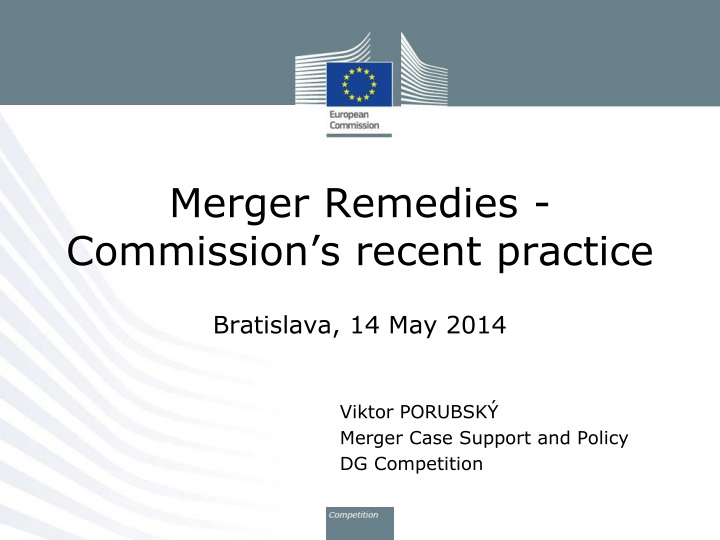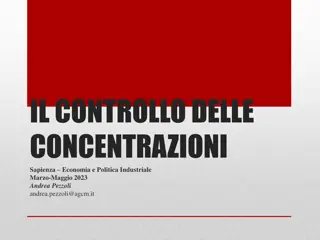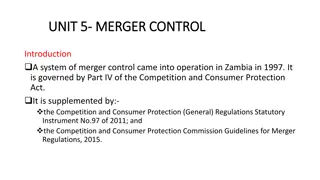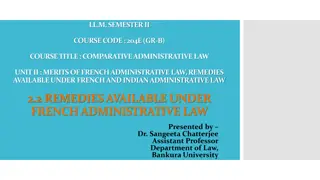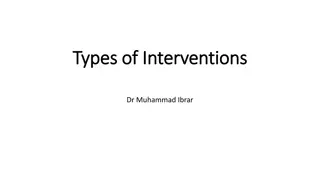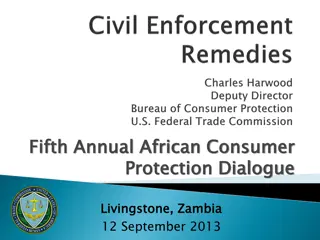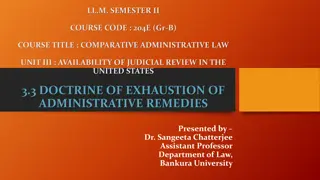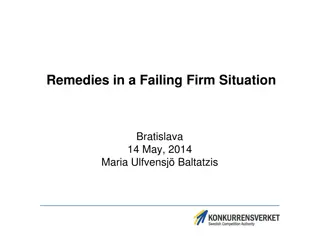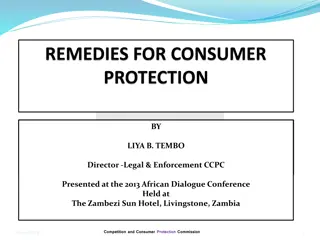Merger Remedies: Recent Practice and Policy in Commission's Intervention Cases
The recent practice and policy regarding merger remedies in Commission's intervention cases are outlined, emphasizing a clear preference for structural remedies such as divestitures. The acceptable remedies must be comprehensive, effective, and capable of eliminating competition concerns entirely. The article also discusses the guiding principles for remedy choices and highlights specific instances of divestiture as a stand-alone business in various merger cases.
Download Presentation

Please find below an Image/Link to download the presentation.
The content on the website is provided AS IS for your information and personal use only. It may not be sold, licensed, or shared on other websites without obtaining consent from the author.If you encounter any issues during the download, it is possible that the publisher has removed the file from their server.
You are allowed to download the files provided on this website for personal or commercial use, subject to the condition that they are used lawfully. All files are the property of their respective owners.
The content on the website is provided AS IS for your information and personal use only. It may not be sold, licensed, or shared on other websites without obtaining consent from the author.
E N D
Presentation Transcript
Merger Remedies - Commission s recent practice Bratislava, 14 May 2014 Viktor PORUBSK Merger Case Support and Policy DG Competition
Commissions Intervention in merger cases 2004-2013 2
What type of remedies are accepted? Clear preference for structural remedies: Divestitures: Divestiture of a stand-alone business remains the norm Open to consider other/complex divestitures (asset carve-outs, re- branding, divestiture of brands/IPRs) if appropriate safeguards Types of remedies: 2011-13 (43 cases) Standard (stand- alone) divestitures 44% Access remedies (incl. airline slots) 19% Divestitures 72% Removal of links with related companies if those problematic Other/complex type of divestitures 28% Removal of links with competitor 9% Occasionally behavioural remedies in the form of: Access remedies in appropriate cases if as effective as structural remedies 3
Remedies choice - guiding principles See Commission's Remedy Notice Only Parties can offer commitments Basic conditions for acceptable remedies: Comprehensive and effective, capable to eliminate the competition concerns entirely Capable of being implemented within a short period of time Divestiture remedies: ensuring viability and competitiveness of the divested business Remedies subject to general principle of proportionality (but have to entirely remove concerns Cemetbouw) 4
Divestiture of a stand-alone business Kraft/Cadbury Chocolate confectionary in various EU Member States Concerns in Polish chocolate tablet and pralines markets and Romanian chocolate tablets market Clear-cut divestiture remedy: PL: Wedel business (Cadbury s Polish traditional confectionary business under the Wedel brand) including trademarks, franchising businesses and 2 manufacturing facilities RO: Kandia business (the Cadbury domestic chocolate confectionary and soft cake business in Romania), including several trademarks and manufacturing facilities
Divestiture of a stand-alone business Unilever/Sara Lee Body Care Concerns in deodorants markets in several countries Remedy rationale - removal of overlap (Sanex) Initial proposals with risks on viability: splitting the brand for deos and shower gels, plus alongside country borders temporary brand licencing and re-branding for purchaser Accepted remedy: entire EU Sanex business 6
Complex divestitures: carve-out Carve-outs can be acceptable if They meet the same criteria (viable, competitive) and Additional safeguards to remedy the implementation risks (such as a limited pool of purchasers, risk of deterioration of the competitiveness or saleability of the business) Which safeguards: Purchaser criteria: e.g. buyer has to be active or has recent experience in the industry so that he can integrate the divestment business into its existing business Up-frontbuyer (or fix it first) if limited pool of purchasers or risk of preserving competitiveness If no up-front buyer: Crown-jewel commitment? 7 Reverse carve-outs
Complex divestitures: carve-out Crane/MEI Merger of the two strongest players for certain types of payment handling systems, concerns in 2 markets Remedy: Carve-outs of the relevant businesses: software, patents, trademarks, personnel, sales/marketing etc Safeguards: Strict purchaser criteria Up-front buyer clause 8
Complex divestitures UPS/TNT Express Concerns in 15 national markets for intra-Europe next day services Proposed remedies Not a stand-alone biz, but divestiture of local subsidiaries in 15 origin countries + temporary access to UPS' air network Viability+competitiveness critically depends on buyer Need to connect divested assets to a functioning existing network -> up-front buyer or fix-it first needed (safeguards) Parties unable to offer up-front or fix-it first buyer La Poste/DPD as a potential buyer would also be unsuitable due to weakness of network (notably no air network) No sufficient safeguards -> prohibition 9
Access remedies Intel / McAfee Competition concerns: foreclosure/exclusion of rivals in IT security and creation of monoculture in IT security Remedies : running on Intel CPUs and chipsets Provision of interoperability information No impediment of security rivals solutions from 10
Role of Trustees Monitoring trustee Appointed by the parties with the approval of the Commission Supervises the implementation of the commitments on behalf of the Commission, for example: Business separation Hold-seperate obligations Preservation of viability in the interim period Evaluation of purchasers Access remedies: overseeing the process, disputes Divestiture trustee Appointed (by the parties and approved by the Commission) if biz not sold within 1st divestiture period Task to sell the business to a suitable purchaser for no minimum price ( fire sale )
Thank you for your attention Disclaimer: the contents of this presentation are the views of the author and do not necessarily represent an offiocial position of the European Commission
